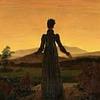Take a photo of a barcode or cover
challenging
informative
reflective
medium-paced
Graphic: Suicide
Minor: Domestic abuse, Rape
“In a work of nonfiction we almost never know the truth of what happened. The ideal of unmediated reporting is regularly achieved only in fiction, where the writer faithfully reports on what is going on in his imagination… Only in nonfiction does the question of what happened and how people thought and felt remain open.”
The Silent Woman by Janet Malcom is a meditation on the art of biography using the biographies of Sylvia Plath as a sort of case study. Although discussing much of Plath’s life and work, this book is more of an examination of her afterlife—how Plath rose to such mythical levels and the people, including Ted Hughes and his sister, who fought in various ways to shape Plath’s image, and in the case of Hughes even her writing, after her death.
But it is also about the complexity and impossibility of the entire enterprise of biography writing. From the subject to the insightful, lovely, and at times, biting writing, this was quite a compelling read that captured my attention throughout and was one of my favorite non-fiction reads this year.
This isn't a biography of Sylvia as much as it is an essay about the problems of biography and the Sylvia Plath myth. Janet is a very engrossing narrator, it's like reading a novel or a thriller, her scenes are very vivid. She lost me when she proudly announced herself as a Hughes apologist. She quotes from him profusely - I get the sense that this book has more of his words than of Sylvia's. In his letters he sounds exactly like the narcissistic man he was - anyone familiar with the type would recognise that. Janet does not... Which makes me think she's probably the same type. Nonetheless, the work illustrates to detail the complexity of telling a life story, the many sides to the same scenes, the impossibility of knowing the truth because the truth has as many shades has there are people to tell it.
This isn't necessarily a real review, but rather a note I made while reading which pretty much sums up how I feel about this book:
This book it starting to get so repetitive and boring. At first I was really interested in her take on the morally ambiguous nature of biography, but after about the first third of the book she has said absolutely nothing new. After each anecdote she goes off a self indulgent ramble that basically amounts to "oh-em-gee guys! Biographies are so WEIRD!!" I want to yell at her I GET IT! I PROMISE I DO! Your readers have a basic level of intelligence and don't need to be told the same thing 20 times to understand you!
This book it starting to get so repetitive and boring. At first I was really interested in her take on the morally ambiguous nature of biography, but after about the first third of the book she has said absolutely nothing new. After each anecdote she goes off a self indulgent ramble that basically amounts to "oh-em-gee guys! Biographies are so WEIRD!!" I want to yell at her I GET IT! I PROMISE I DO! Your readers have a basic level of intelligence and don't need to be told the same thing 20 times to understand you!
This isn't necessarily a real review, but rather a note I made while reading which pretty much sums up how I feel about this book:
This book it starting to get so repetitive and boring. At first I was really interested in her take on the morally ambiguous nature of biography, but after about the first third of the book she has said absolutely nothing new. After each anecdote she goes off a self indulgent ramble that basically amounts to "oh-em-gee guys! Biographies are so WEIRD!!" I want to yell at her I GET IT! I PROMISE I DO! Your readers have a basic level of intelligence and don't need to be told the same thing 20 times to understand you!
This book it starting to get so repetitive and boring. At first I was really interested in her take on the morally ambiguous nature of biography, but after about the first third of the book she has said absolutely nothing new. After each anecdote she goes off a self indulgent ramble that basically amounts to "oh-em-gee guys! Biographies are so WEIRD!!" I want to yell at her I GET IT! I PROMISE I DO! Your readers have a basic level of intelligence and don't need to be told the same thing 20 times to understand you!
I struggled to finish this book. This is some of my favourite subject matter (the Plath estate, as well as biography as a genre and its limitations and difficulties) and yet I had to force myself through it. A little disappointed tbh. Although Malcolm makes brilliant observations and offers invaluable insight into the genre of biography, her style is just so dry.
At about p.183 things really started to pick up. I particularly enjoyed the final note on Malcolm's correspondence with Hughes over the US publication of The Bell Jar as an example of the problem of the omniscient biographer. It was artfully included and summed up her argument very neatly.
At about p.183 things really started to pick up. I particularly enjoyed the final note on Malcolm's correspondence with Hughes over the US publication of The Bell Jar as an example of the problem of the omniscient biographer. It was artfully included and summed up her argument very neatly.
uses plath & hughes as an excuse to comment on the nature of biography ... the afterlife of sylvia plath becomes more interesting than her life.




